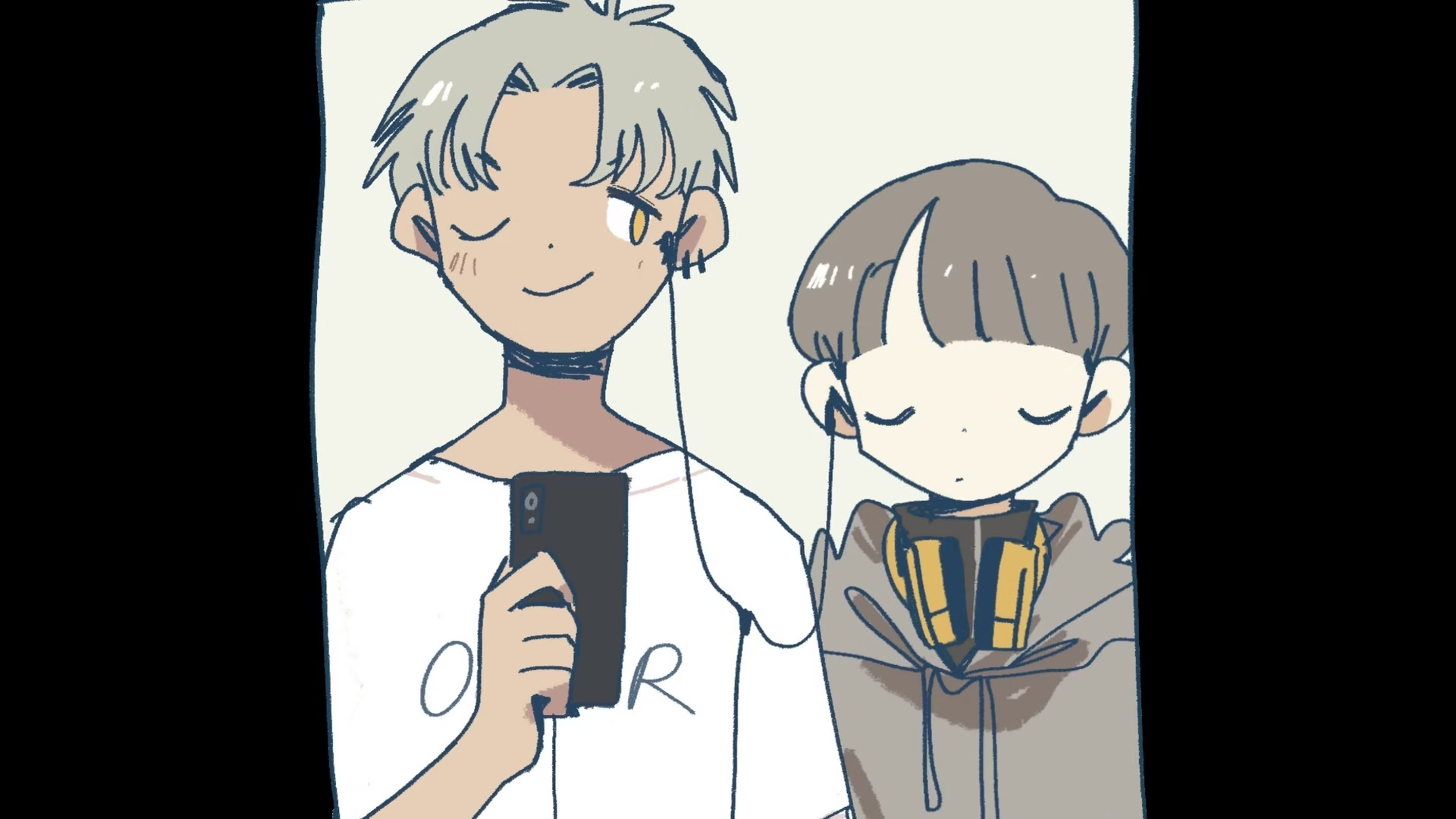Afterlove EP has a lot on its mind. Loss, grief, friendship, love, art, disappointment, self-doubt, bitterness, anger, discrimination… one could go on. Capital L Life, that is. All explored through the eyes of Rama, a young musician in Jakarta, struggling to move on after the death of his girlfriend, Cinta. In a more perfect world, this could have been an earnest meditation on the fleeting nature of existence, the everyday trials and tribulations, the shared yet unique experiences of grieving, and getting back on your feet — and I do believe that’s what the developers had set out to achieve, if not more. Alas, poor execution leaves it a tremendously more frustrating experience than anything profound.
Practically a visual novel, with the slightest sprinkling of the most elementary rhythm game and dating sim, the latest from Indonesian indie studio Pikselnesia opens with a straightforward core premise: A year on from Cinta’s passing, a self-secluded Rama wants to get the band (Sigmund Feud) back together and start performing again with some new songs he’s been working on. But the world has kept turning in his absence, and bassist-manager Tasya and drummer Adit have lived their own lives in that time. While everyone is mostly happy to get back together, it’s Rama himself who clearly isn’t ready yet, with Cinta still pressing on his mind, literally. He hears her constantly and has conversations with her; letting “her” dictate his views and refusing to acknowledge his mental health. Long story short, the game lays out a month for you to get yourself together in time for a concert, which might determine not just the future of the band, but your relationships at large. Not too shabby, eh?
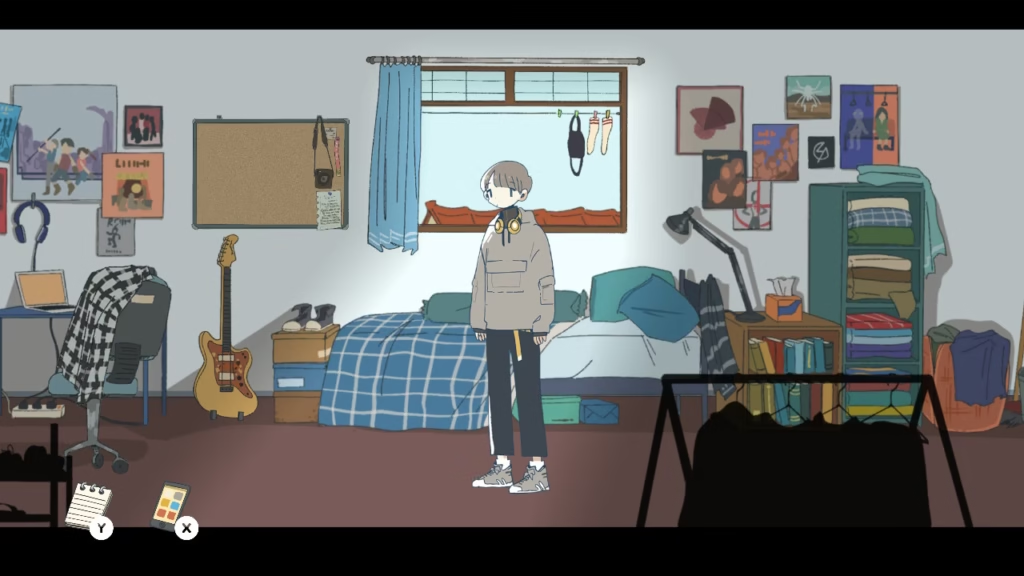
Said month plays out day-by-day, deployed very much in the vein of games like Persona 5. Every day you can perform roughly two activities, which mostly revolve around meeting people and having a conversation. But cracks begin to appear very quickly. The mechanic is rather thinly implemented, giving one only an illusion of choice. If you are not tied up in a required activity (say, band practice), there are limited things of consequence (or interest) at your disposal. The most you can do is choose the sequence of how you go about it. And the interactions herein play out quite by the numbers — you meet one of the five-or-so characters (apart from Tasya and Adit), have a conversation which usually occurs in the sets of three, by the end of which you’ve either reached a conclusion or progressed to another similar set of the same.
The conversations themselves (which, again, make up for most of the game) feel a bit all over the place. Without treading into spoilers, there are a few that genuinely surprise you with their depth (or just the fact that the game would go there), probing deftly into the subjects mentioned before, but increasingly become these snippet-like exchanges from self-help books, doused in banality. Worse yet, by the time you are in the second half of the game, there’s a sense that you are repeatedly partaking in recycled conversations. Not to mention the broken mechanics which constantly throw you out of any semblance of continuity. For instance, a character would message asking you to meet, only for them to act completely surprised when you actually show up.
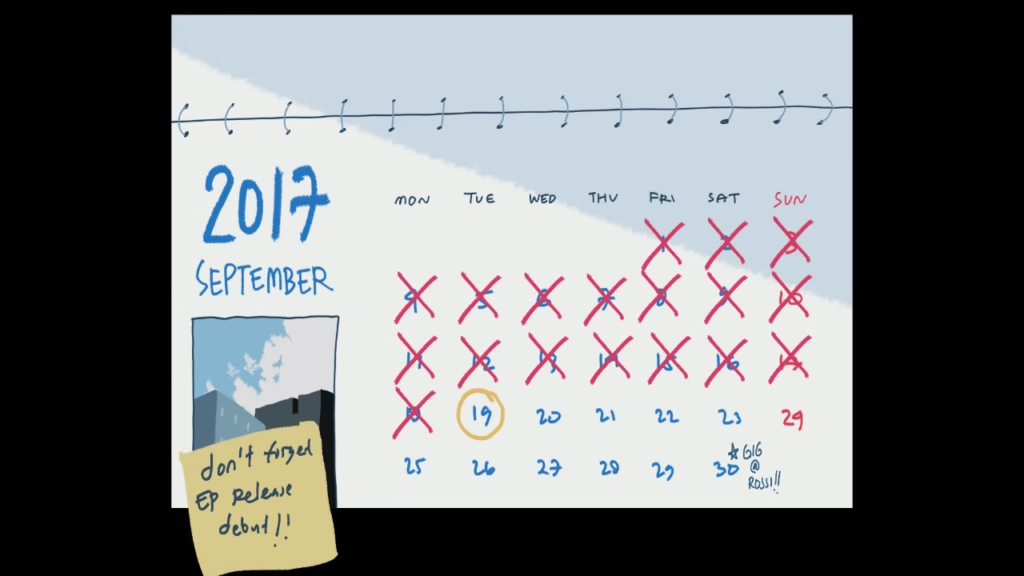
Even in places where the game generally does well, it’s never completely unmarred. Cinta’s incessant high-pitched talk and comments (the only character to be voice acted) in Rama’s head takes only a minute to get old and annoying. On the one hand, it’s a neat trick where the player is forced to experience what it might be like to have a voice constantly pressing on you as you try to figure things out. On the other, the more you listen to what she has to say, the notion that it’s a prat of your own mind or darker tendencies begins to break down a little, making it come off more gimmicky than perhaps intended. (To say nothing of the story’s flirtation with the ‘deceased female character influences a male protagonist’s journey’ trope.) Similarly, while the band dynamics are fun to witness, and the disagreements and fights feel real to begin with, they eventually dissolve into forced motifs, exaggerated by the fact of how predictable it all is. More often than not, at the heart of this are these jagged conversations spread throughout the game that don’t quite align. You would have an exchange with someone, get a feeling that things have progressed or shifted (even in the case of Cinta), but soon enough another set of dialogues or interaction will bafflingly take you back to square one. Think of a conversation with an LLM that keeps losing the threads.
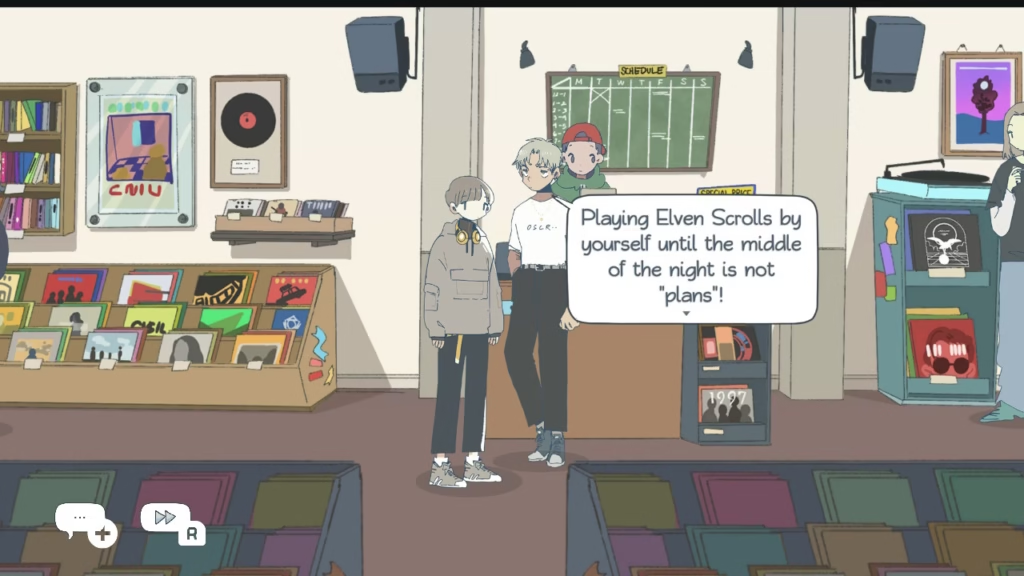
Beyond the conversations, the game suffers from a similar malady — good in parts, but never quite there. The manga-inspired art by artist Soyatu offers a relaxed, minimalist take on the city, while the pastel colours tie well with the beats and themes of melancholy and optimism. But with little to no animation, the burden of carrying it all on the shoulders of still art proves distracting at times, more so when the limited variation of emotive expressions at disposal during exchanges don’t match with what is being said. And there are times when what you see on the screen is not what is being conveyed in the story. For example, sitting at the bar during quiet hours suddenly cutting into sitting at a table in a packed place, or a character remarking on some photographs on the wall of your room when none exist. Now, I understand that there is a certain suspension of disbelief required when playing videogames — often more so with the indies. And it would have been easy to ignore if a character hadn’t remarked in the first instance that the place would be a bit deserted, or in the latter, if the game hadn’t made a point of you having removed all photographs from the wall in the very first sequence of the game. By now, you can probably see the running pattern of concerns here.
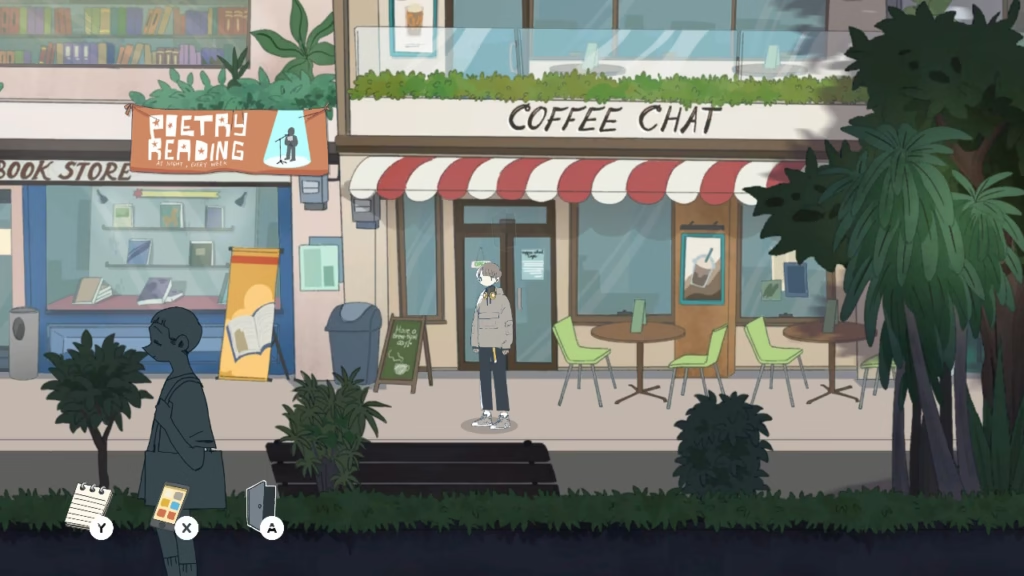
As for the music — which again makes up for an important element, given how much of the storyline revolves around it — while the score feels a little generic, there are a few decent tunes that stand out here and there, all from by the indie band L’Alphalpha, who also feature (albeit only in conversations) in the game (it’s for them that your band is opening in a month’s time). But here yet again, the game does its thing, making it nigh on impossible to follow the lyrics (a few times they do appear) when you’re busy mashing keys for the rhythm minigame.
For a game that aims to deal with some deep subjects and personal experiences, it undercuts itself again and again by its own design, and rarely steps out of familiar trappings. And this stings more given that it is the final project by (and dedicated to) writer and developer, Mohammad Fahmi (Coffee Talk), who passed away in 2022 at the age of 32. In a different timeline, this would perhaps would have been a graphic novel or even an anime, more streamlined and effective. But in a time when titles like A Space for the Unbound (on which the dev team has also worked) have been pushing the boundaries for slice-of-life and narrative adventures, Afterlove EP feels, much like its protagonist, out of sorts and stuck in the past.
Game reviewed on Nintendo Switch. Review code provided by publisher
Image credit: Screengrabs from Afterlove EP on Nintendo Switch
